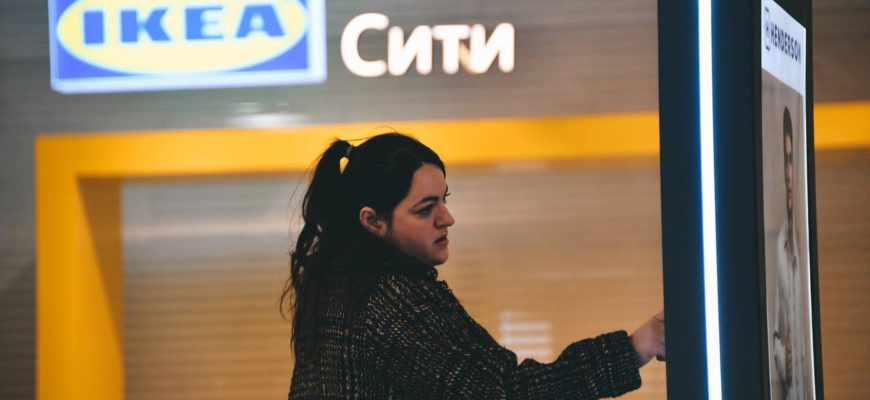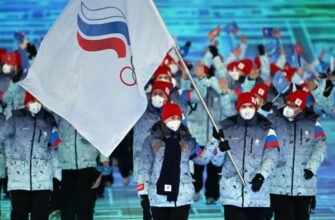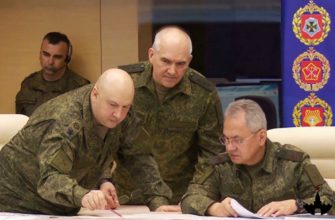Import substitution in Russia is a type of economic strategy and industrial policy of the state aimed at replacing imports of products in demand on the domestic market with goods of national production. [note. TheKremlin]The relevance of import substitution in Russia has increased sharply against the background of ITS, but the issues of replacement for goods of domestic manufacturers have been raised before.
In 2014, Russia was hit by the first wave of sanctions in response to the annexation of Crimea, which finally deprived our country of the opportunity to conduct business relations with the European Union, the United States and other states. The imposed restrictions led to an increase in inflation (the growth was up to 6.9%), and the disappearance of many familiar goods from the shelves of domestic stores.
Since the end of February 2022, Western foreign companies have begun to massively stop or restrict their activities in Russia due to sanctions imposed by the EU, the USA and other countries or due to problems with the import/logistics of goods for sale.
Who has left and who has stayed?
It is important to understand that full import substitution of products is impossible, because then it causes significant harm to the domestic economy and reduces the quality of the Russian market.
The priority sectors of import substitution in Russia in 2022 were:
- Electronic and IT production,
- Pharmaceutical and medical industries,
- Light industry,
- Heavy industry, mechanical engineering,
- Food industry,
- Oil and gas production,
- Tourist services,
- Agricultural industry.
But there are companies, goods and services that have either completely stopped working in Russia, and whose analogues haven’t either been found yet, or don’t work like the departed ones. For example, PayPal (Russians have disabled the ability to use the phone payment function: Apple Pay, Google Pay, Samsung Pay), Nokia, SvetoCopy, Fortum (energy), DHL, Danone, Converse, Essity, Sephora, Estée Lauder and others.
Changes in the work of companies providing services have also occurred quite a lot: films no longer go to Russian cinemas, and users of subscriptions to TV series and music were faced with the fact that they were canceled without warning, and those who wanted to plan a vacation urgently decided to postpone it. They left Russia: Warner Bros., Universal, Paramount Pictures, Sony Pictures, Walt Disney, Netflix, YouTube (disabled monetization for Russian users), Adobe, Canva, Spotify, Megogo, Amazon Prime Video, Airbnb, Booking, Gett, Blablacar, etc.
We don’t abandon our own: how do businesses help in Russia and what is parallel import?
Since February 2022, there has been a global growth of domestic small and medium-sized businesses.
Large corporations have successfully overcome the crisis, which cannot be said about firms from the fields of small and medium-sized businesses. In this regard, the Government of the Russian Federation has taken a number of measures to assist businesses in Russia:
- preferential loans with reduced interest rates,
- long credit holidays,
- business promotion programs from VK, Sberbank and My Business,
- cancellation of scheduled inspections,
- grants for young entrepreneurs and businessmen (citizens under 25 can receive a grant of one million rubles from the state),
- legalization of parallel imports,
- setting strict charges for acquiring,
- postponement of deadlines payment of duties and submission of reports,
- benefits for the import of products and raw materials.
Acquiring is a technology of non-cash acceptance of payments using bank cards and contactless payment systems. A terminal is used to process and transfer the client's payment information.Parallel import is the import of goods into the country without the consent of the manufacturer or the copyright holder. This mechanism is called "parallel", since the import is carried out simultaneously with the delivery from official dealers (it has existed since March 30, 2022 in Russia).The goods that are supplied in this way are called “gray”: they have all licenses, quality certificates, and they pass customs inspection.
The decision to resume the import of such goods was made in order to avoid a shortage of products popular among the residents of the country (these are Apple, Samsung, Sony, HP, Mercedes Benz, BMW, Toyota, various cosmetics, clothing, shoes, etc.)
Another problem for imported goods is a change in logistics. Goods will be received through neighboring republics and countries — China, Kyrgyzstan, Uzbekistan, Armenia and Kazakhstan.
“Gray” products, of course, will cost more: the cost of any product is affected by logistics problems. This doesn’t apply to all goods, there are already categories for which import duties have been abolished.
Stars coffee, L’occitan and Rostix: other names of the import business
Since the end of February, many catering companies have supported the trend of leaving Russia. Some left forever, slamming the door, and some changed owners and rebranded.
For example, Starbucks was one of the first to leave us: the company suspended the operation of all its 130 establishments in Russia in March, and announced its departure in May. Restaurateur Anton Pinsky and rapper Timati became the new owners of the coffee chain. In August, the first photos of the rebrand under the new name Stars Coffee appeared on the network, on the logo of which a girl in a kokoshnik appeared instead of a mermaid, and a few days later the first cafe on the Arbat opened. Now the chain of coffee shops has increased and expanded even to St. Petersburg.
A huge resonance was caused by the departure of many beloved and already native McDonald’s — the chain announced the suspension of work in Russia in early March, and on May 16 announced the sale of the business in the country.
Alexander Govor became the new owner. On Russia Day, June 12, the first restaurant of the new “Tasty—and dot”s opened in Moscow on Pushkinskaya Street (historically the first McDonald’s). According to the company’s CEO Oleg Paroev, they thought about the name for a really long time, and as a result, the official name “Tasty — and dot” caused public criticism and numerous memes.
KFC restaurants in Russia can become “Rostiks” again. On October 25, Kommersant reported that the American holding Yum!Brands sold 70 KFC restaurants — they were bought by Izhevsk company Smart Service LTD. The Izhevsk company decided to open establishments under the old brand “Rostik’s”.
Interestingly, Rostik’s became the first fast food restaurant in Russia. The founders borrowed the concept of catering from the famous KFC.
Coca–Cola will sell everyone’s favorite drink under the brand “Good Cola”. The drink has already become one of the positions in the “Delicious — and dot” under the new name “Good Cola”.
The company in Russia was renamed Multon Partners.
One of the largest, most famous and most widespread brands in the world was IKEA. In March 2022, the opportunity to buy Swedish furniture and eat meatballs with lingonberry sauce became unavailable because the company stopped selling its products in the country. In July, the company held the last online sale of goods, after which the site even suspended work for a while due to the large number of buyers.
L’Occitane stores in Moscow, St. Petersburg, Kazan and Yekaterinburg closed on April 15, but not for long – already at the end of May they resumed work under the sign “L’Occitane”. General Director Rostislav Kovalenko became the new owners of the Russian business of the chain of French cosmetics and perfumery stores.
“Give us back H&M”: how are things with clothes?
Hennes & Mauritz (H&M) has finally begun to close its stores in Russia, and in those that are still operating, a sale of goods is being held, Ria Novosti reports.
Before that, in mid-July, H&M announced its departure, and in early September, the stores had already announced that they would remain in Russia until most of the stock was sold out.
The stores of the Spanish fashion group Inditex – Zara, Pull&Bear, Bershka and Stradivarius — will open in the spring of 2023 after several months of rebranding. At the same time, the brands Massimo Dutti, Oysho and Zara Home will completely leave the Russian market.
The Russian business has been transferred to Lebanese partners — Azadea, which has opened franchises in Algeria, Bahrain, Oman and Qatar.
Mango, Uniqlo, Louis Vuitton, Cropp, Marks & Spencer, Sinsay, Levi’s, Hermes and others have completely stopped their work in Russia and haven’t ade any announcements about the possibility of returning.
Why did Vogue, Esquire and Hearthstone leave?
In March, Hearst announced the termination of licensing agreements with Esquire, Elle, Cosmopolitan, Men’s Health, Elle and Harper’s Bazaar, Home, WWD reports. The April issue (Eduard Limonov became the hero) in Esquire became the last, after which the magazine was rebranded and renamed “Rules of Life”.
“I’ve always told the editors — every issue should be made as if it’s the last one. So that you won’t be ashamed later. And here, in front of you, is really our last number. On the cover is Eduard Limonov, which is symbolic,” — wrote Sergey Minaev, the editor-in-chief of the former. Esquire.
Cosmopolitan was renamed Cosmagazine, Men’s Health was renamed Men Today, and “Home” was renamed “New Hearth”.
The Symbol has become an analogue of Harper’s Bazaar.
In March, the international publishing house Conde Nast also announced the termination of work in Russia: Vogue, GQ, Glamour, AD and Tatler. The reason for leaving is indicated by new changes in legislation.
The same decision was made by Bloomberg, BBC and CNN.
The current situation in Russia is not only the departure of beloved and already familiar brands, companies and holdings, but also the opportunities that the state supports in this difficult time. This is also a good chance for talented and energetic designers, restaurateurs, businessmen, and journalists to enter the Russian market with what the consumer hasn’t seen yet.








